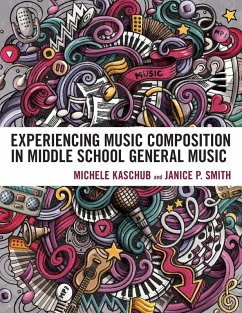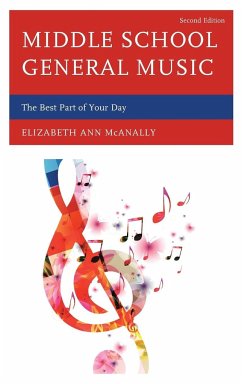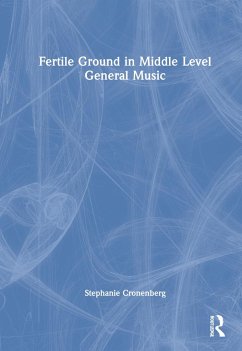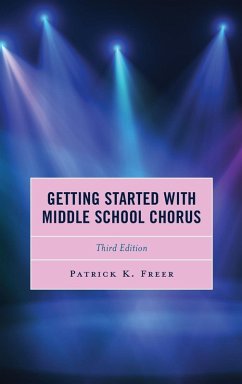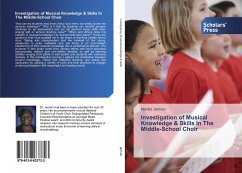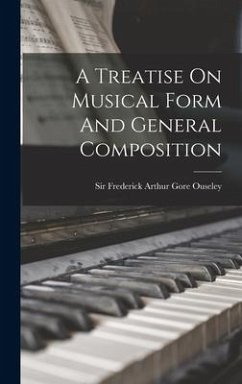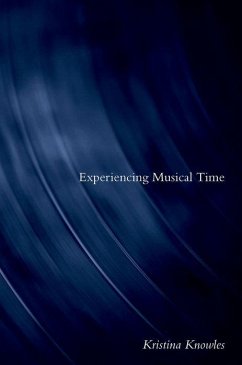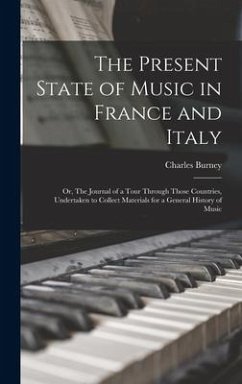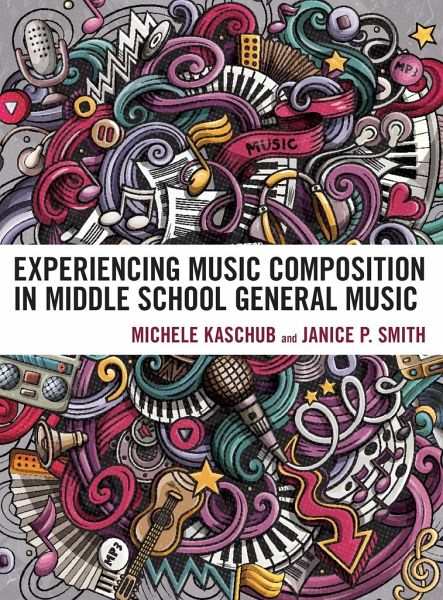
Experiencing Music Composition in Middle School General Music
Versandkostenfrei!
Versandfertig in 1-2 Wochen
78,99 €
inkl. MwSt.
Weitere Ausgaben:

PAYBACK Punkte
39 °P sammeln!
Experiencing Music Composition in Middle School General Music features pedagogical strategies and practical advice for teachers coupled with 15 engaging lessons tailored to meet the needs and interests of middle school musicians.





